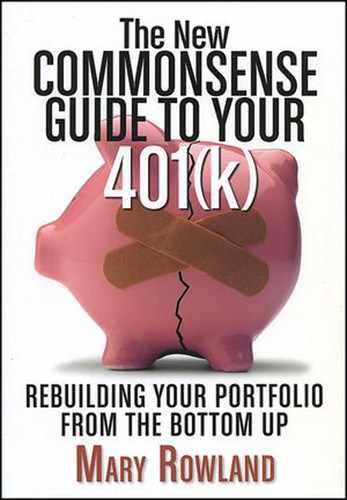WHEREVER YOU ARE in your working life—first job out of college or at the top of your game —take a few minutes to think about what you can expect from a job or career and what you might expect later, when it's over.
Just out of college? You shouldn't have a career set in stone. Few people end up doing exactly what they prepared to do in college. Some who do end up feeling stultified later because they feel they've never had the time or place to grow and explore.
Recent college graduates face a particularly difficult job market. Don't despair. Look for a job in an area that mirrors your talents and interests, even if it is low-level. But do look forward and dream. Don't get caught in the financial needs of the moment, focusing on paying off college loans, saving money for a great vacation or the perfect honeymoon or a down payment on a house so that you spend money as fast as you earn it and never have the luxury to reflect on what you might have done. Life is what happens when you're busy paying the bills and struggling to keep your head above water.
Failing to look into the future is one of the biggest mistakes working Americans make. We're constantly reminded that we're never saving enough for retirement. That's an old tune. What about that stretch of time between now and retirement? If we're saving everything for retirement, we're probably not stretching our lives to become the most we can be now, and later.
Work life in America was redefined in the 1980s and 1990s as more than 43 million jobs disappeared. Many new jobs appeared. But too many that were lost belonged to higher-paid, white-collar workers—those employees who looked forward to a pension and a comfortable retirement.
Middle managers were replaced by contract workers. "Consultant" is the euphemism for many of those who today earn low wages and receive no benefits. Americans who were forced into "early retirement" in their fifties often found they had to return to work in their seventies as grocery clerks or inventory stockers.
This revolutionary change in the workplace will be followed by a revolutionary change in retirement. Don't get depressed. Do think about what you will do with your work life and your non-work life and how you might merge them together in a way that is satisfying.
Charles Handy, a professor and author on organizational change, made some suggestions in his book, The Age of Unreason (Harvard Business School Press, 1998). When Handy wrote in 1990 that working at a corporation was no longer a viable career path for most people, it seemed startling. Two decades later, it seems obvious.
Handy, who began his career as an oil executive and then became a teacher and writer, predicted that workers in the twenty-first century would fit into one of three types: managers and technicians who will run the corporations, unskilled clerks and laborers, and those who work on a contract basis. Not only will many of us spend our working lives as self-employed contractors, Handy wrote, but all of us will work until a much later age. Even those managers and technicians who work as employees will remain in their jobs only until age fifty-five or so, he predicted, at which point they will have fifteen or twenty more work years.
This future is now. To prepare, Handy recommends that you develop a portfolio of skills, services, and products that you can sell to corporations and to others in the marketplace. When his own two children left college, he told them: "I hope you won't look for a job in a corporation." Instead, he advised them: "Look for customers. If you have a saleable skill, you can always work."
Of course demographics play a role too. As Americans live longer and enjoy better health, most of us will want to be busy and productive. Whether you are just starting out in your career, you are at midpoint, or you are nearing the finish line, work on the skills you need and develop the talents you have. Retirement at sixty or sixty-five will no longer be an option for most people working today. Those who have a portfolio of skills will be able to pick and choose what they will do and when they want to do it. For them, a blend of work and leisure can be a pleasure. It will solve the "problems" of both work and retirement.
